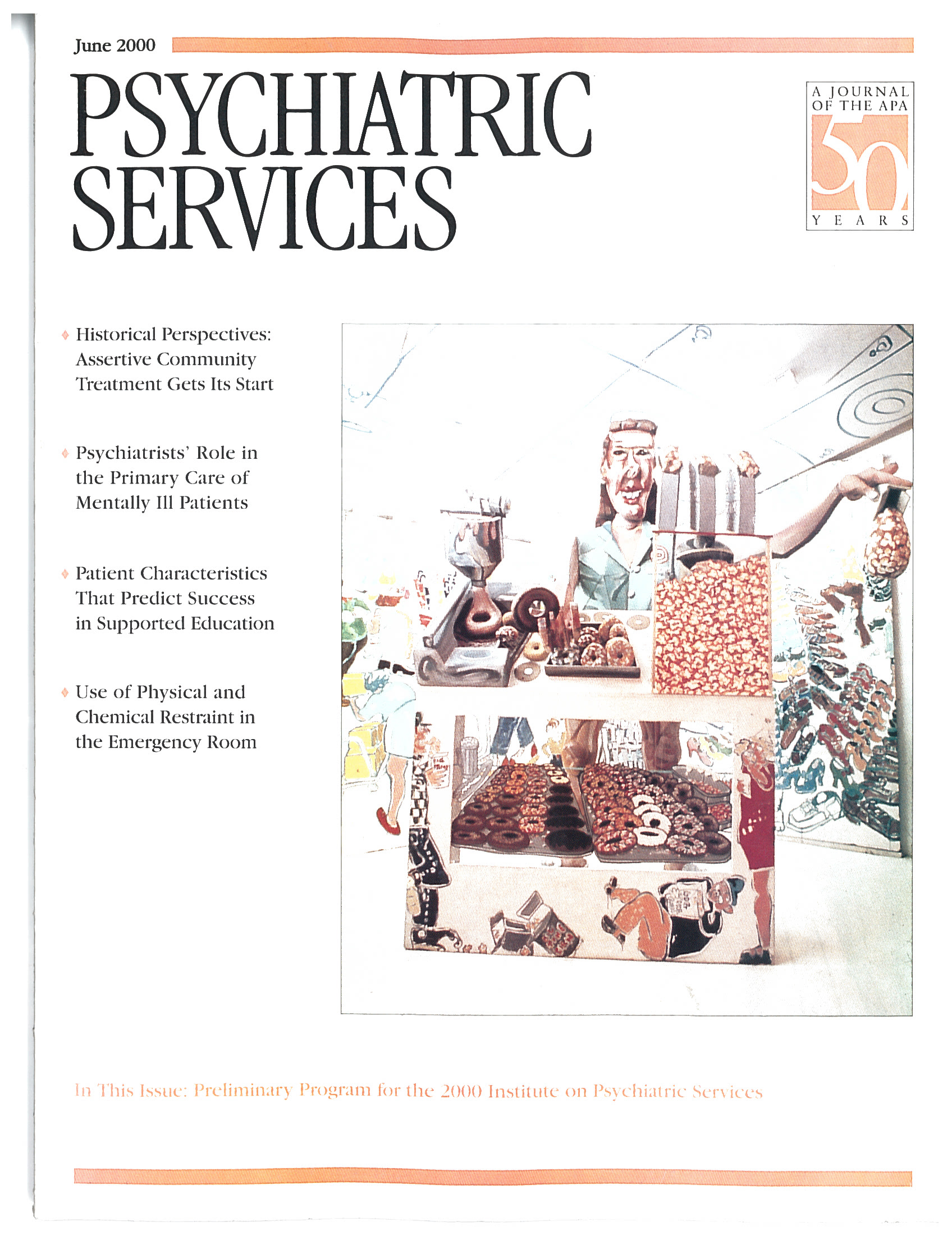• The Assertive Community Treatment Model
This month we continue our review of important developments in psychiatric services over the past 50 years by reprinting an article on the assertive community treatment program, first published in the October 1974 issue of Hospital and Community Psychiatry. The article describes the development of assertive community treatment and the qualities that led to its selection as a 1974 winner of the American Psychiatric Association's Gold Achievement Award (see page 755). In a commentary and analysis, Lisa Dixon, M.D., M.P.H., notes that assertive community treatment programs have been widely disseminated. She reviews more than 100 studies of the program and concludes that it has improved the lives of many people with severe mental illness (see page 759).… In the Taking Issue column, Graham Thornicroft, Ph.D., contends that more rigorous research is needed to establish which groups of patients can affordably benefit from assertive community treatment (see page 703).
• Primary Care Psychiatrists
To ensure that people with serious mental illnesses receive adequate care for physical illnesses, Beatrice A. Golomb, M.D., Ph.D., and her colleagues propose that mental health clinics be reorganized to provide integrated care delivered by a "primary care psychiatrist," defined as a psychiatrist with additional primary care training who is supervised by an onsite internist. To determine which conditions such psychiatrists would be qualified to treat, the authors convened a panel of physicians to rate whether a primary care psychiatrist could reasonably provide care for 344 physical health conditions. The panel rated primary care psychiatrists as appropriate providers for a majority of the conditions and for 11 of 13 conditions most often seen in ambulatory visits (see page 766).
• Using Computerized Databases in Research
Roland S. Chen, M.D., and his associates examine whether prescription data from a computerized database can be used to measure an organization's conformance with evidence-based clinical guidelines. They focused on recommendations developed by the Schizophrenia Patient Outcomes Research Team (PORT) for prescribing antipsychotic medications in treating schizophrenia. Of the 18 PORT recommendations, only three could be meaningfully addressed with the available computerized data, and measurements of the extent of conformance were imprecise. The authors believe that computer-based analysis is best used to identify potentially significant problem areas, after which the full significance of the findings should be determined through chart reviews (see page 791)
• Race and Diagnosis
Few studies have examined whether rates of psychiatric diagnosis differ among elderly members of racial groups, an issue that has important implications for treatment planning. In a study of a large group of elderly African-American, Caucasian, and Hispanic patients in the Veterans Affairs health care system, Helen C. Kales, M.D., and her colleagues found significantly lower rates of mood disorders among elderly African-American patients than among elderly Caucasian and Hispanic patients. In every analysis, the rate of mood disorders among African-American patients was less than half the rate among Caucasians, a finding that clearly merits further study, the authors say (see page 795).
• Tarasoff Warnings
In the wake of the Tarasoff case in California, many other states began requiring that mental health professionals protect a potential victim whom a patient has threatened to harm. But how to discharge the duty to protect has been left open to interpretation. Michael G. Huber, M.D., and associates report a study that examined one way to protect potential victims—notifying a local law enforcement agency. In a telephone survey of police stations in South Carolina and Michigan, they found that veteran police officers in both states had limited experience with Tarasoff warnings. The authors conclude that calling the police may not be the best way to protect potential victims (see page 807).
• Briefly Noted…
• The use of physical and chemical restraint in the psychiatric emergency service is discussed in the Emergency Psychiatry column (see page 717).
• Nancy Wolff, Ph.D., examines how consolidation of all long-term inpatient care at one state mental hospital affected the local community (see page 801). A related article discusses the need to consider the community's perspective in planning for changes in service systems (see page 749).
• This month's Books section opens with a review of two books on self-mutilation (see page 821).

